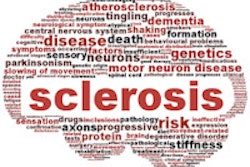A global study commissioned by GE Healthcare warns that rising breast cancer incidence and mortality represents a significant and growing threat for the developing world.
The increase in breast cancer across developing nations is mainly due to longer life expectancy and lifestyle changes such as women having fewer children, as well as hormonal intervention such as postmenopausal hormonal therapy, said Bengt Jönsson, report co-author and Stockholm School of Economics professor of health economics, in a statement.
Mortality rates in these regions are compounded by the later stage at which breast disease is diagnosed, as well as limited access to treatment. This presents a "ticking time bomb" that health systems and policymakers in these countries need to work hard to defuse, Jönsson said.
The report also suggests that consumer understanding about breast cancer and screening methods is putting lives at risk in the developing world, according to GE. For example, a recent survey in Mexico City indicated that many women feel uncomfortable or worry about having a mammogram. The vendor said it's working with a number of governments and health ministries in these regions to expand access to screening and improve consumer awareness.
The report also highlights the impact of breast cancer on sufferers' lives. Fifteen million years of "healthy life" were lost worldwide in 2008 due to women dying early or being ill with breast disease, according to the most recent published data from the World Health Organization, GE said. Women in Africa, China, and the U.S. lost the most years of "healthy life," which is defined as years lost due to premature death and being incapacitated by the effects of breast cancer.
Of the 15 million years lost globally, more than three times as many years were lost due to dying than to being ill with breast disease. In some nations (Africa, Russia, Mexico, Turkey, and Saudi Arabia), the number of healthy years lost due to death were up to seven times greater than in the rest of the world.
The report findings suggest that a disturbingly high proportion of women are still dying from breast cancer across the world, and this seems to correlate strongly with access to breast screening programs and expenditure on healthcare, Jönsson said.
There is also a distinct lack of accurate and current data in areas such as breast cancer incidence and mortality, the economic burden of the disease, and detailed patient-linked data on outcomes in relation to treatment patterns and stage of diagnosis, Jönsson said. This lack of data limits analyses of how changes in clinical practice affect patient outcomes and needs to be addressed, he said.
The report also notes that quality of life is becoming a growing issue as survival rates improve. As a result, doctors are urged to focus on measuring the impact of diagnosis and treatment on survivors' quality of life to identify what problems patients may have and how these can be mitigated, according to GE.



















